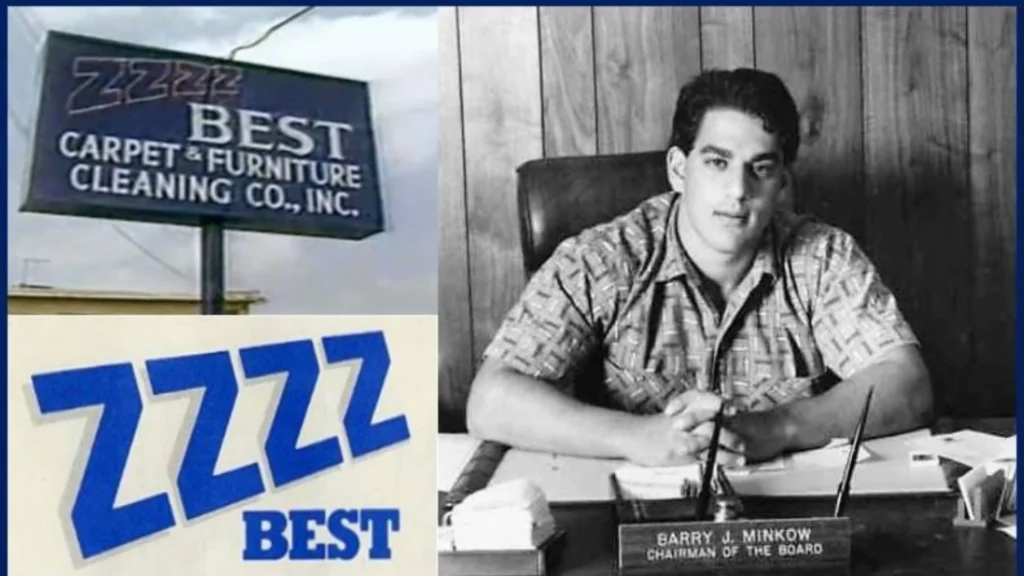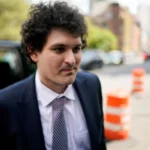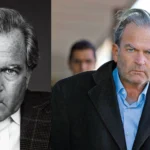
Barry Minkow, born on 22 March 1966, in Inglewood, California, showed a strong interest in business from an early age. At just 16 years old, he launched ZZZZ Best, a carpet-cleaning company, right from his parents’ garage. His drive and ambition were clear—he famously said, “I wanted to build the General Motors of the carpet-cleaning industry.”
Rapid Growth and Public Recognition
By the mid-1980s ZZZZ Best was expanding rapidly. The company claimed to have won major restoration contracts for homes and properties damaged by fire and water which appeared to significantly increase its income.
In 1986, ZZZZ Best became a publicly traded company and its valuation soared to over $300 million, according to Investopedia. The media celebrated Minkow as a teenage business genius. He even made an appearance on The Oprah Winfrey Show.
However, the reality behind this success was far more troubling. Minkow later confessed “I started with the best of intentions… and when economic pressure reared its ugly head and I couldn’t make payroll, I lied and stole and cheated.”
The Illusion of Success
ZZZZ Best’s supposed wealth was mainly built on lies. Around 90% of its restoration projects were fake. Minkow and his team went to great lengths to mislead investors and auditors—fabricating documents, staging construction sites and even renting buildings with fake signage for guided tours.
Minkow admitted, “We were claiming to be doing restoration jobs totaling in excess of $50 million. We weren’t doing any,” as reported by CBS News.
Deeper Fraud and Financial Crimes
Beyond the fake jobs, Minkow was involved in a wide range of illegal financial activities. He committed check kiting, credit card fraud and stole money for personal luxuries including expensive cars and real estate.
He even tried to bribe people to keep the truth hidden. Assistant U.S. Attorney James R. Asperger called the entire scheme “a classic sting… of the Robert Redford, Paul Newman style and vintage.”
The fraud began to unravel in 1987. A homemaker who had been scammed by Minkow helped expose the inconsistencies in ZZZZ Best’s financial reports. Her efforts led to an investigation that would bring the company’s operations under intense scrutiny, according to EBSCO.
Legal Trouble and Conviction
In January 1988, Barry Minkow and ten others were formally charged with crimes including securities fraud, racketeering and money laundering. U.S. Attorney Robert C. Bonner declared that “up to 90% of the company’s claimed revenue was totally bogus.”
At trial, Minkow admitted to the crimes but tried to shift some blame to organized crime figures claiming he was threatened and assaulted to continue the fraud. However, the court rejected this defense, the Los Angeles Times reports.
In December 1988, he was found guilty on all 57 counts. Assistant U.S. Attorney Gordon Greenberg remarked “Barry Minkow did it the good, old-fashioned way. He earned every day of it.”
In March 1989, Minkow was sentenced to 25 years in federal prison and ordered to repay $26 million. Showing remorse, he told the court, “I can only say how sorry I am. I am going to get what I got coming—and I deserve every bit of it.” He served over seven years and was released in 1995.
Life After Prison and Repeat Offenses
After prison, Minkow tried to rebuild his life. He became a pastor and started the Fraud Discovery Institute, presenting himself as a reformed fraud expert. But old habits resurfaced. In 2011 he admitted to insider trading, manipulating the stock of Lennar Corporation. This resulted in a five-year prison sentence, as reported by Forbes.
In 2014, he was in trouble again—this time for stealing money from his own church. He received another five-year sentence. U.S. District Judge Patricia Seitz said, “He is a very gifted person. There is no moral compass that says ‘stop.'”
Legacy of the ZZZZ Best Scandal
The ZZZZ Best scandal is a landmark case in white-collar crime. Minkow’s story has been featured in various documentaries and news segments showing how unchecked ambition and deceit affected the company.
Reflecting on his own actions Minkow once said, “To me, winning meant everything—everything, at all costs,” according to the Los Angeles Times.
From teen mogul to convicted felon, Minkow’s story remains one of America’s well-known business cases.


